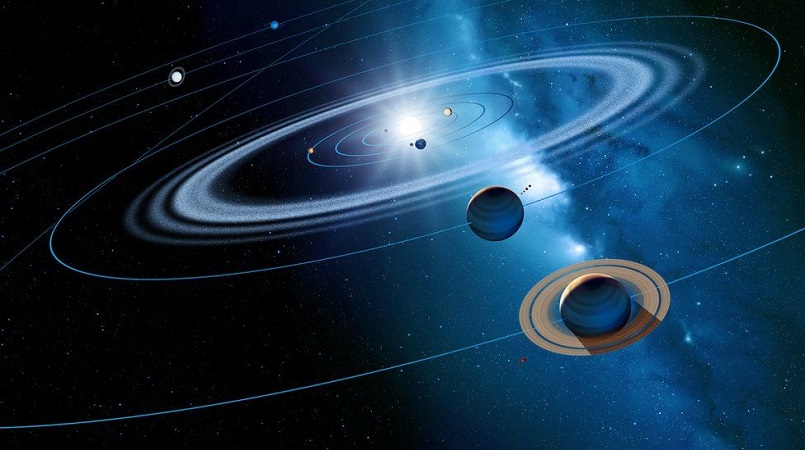
Jupiter and Saturn are set to cross paths in the night sky, appearing to the naked eye as a "double planet".
The timing of this conjunction, as the celestial event is known, has caused some to suggest it may have been the source of a bright light in the sky 2,000 years ago.
That became known as the Star of Bethlehem.
The planets are moving closer together each night and will reach their closest point on 21 December.
Keen stargazers in the UK will have to keep a close eye on the weather to avoid an astronomical disappointment.
"Any evening it's clear, it's worth grabbing a chance, because the weather doesn't look great," Dr Carolin Crawford from the University of Cambridge's Institute of Astronomy told the BBC.
If there is a gap in the winter gloom, both planets will appear in the southwest sky, just above the horizon shortly after sunset.
How rare is the event?
As planets cross paths on their journey around the Sun, conjunctions are not particularly rare, but this one is special.
"Conjunctions are great things to see - they happen fairly often - but [for the planets to be this close] is quite remarkable," Prof Tim O'Brien, an astrophysicist from the University of Manchester, told BBC News.
The two planets - the largest in the Solar System and some of the brightest objects visible in the night sky - have not been this close to each other in a dark sky for 800 years. And while the UK forecast is not at all conducive to star-gazing, it could change.
"It changes hourly - that's just the British weather and that's astronomy for you," said Prof O'Brien.
"The planets will be setting in the southwest, so you need to get out there as soon as the sky is going dark.
"None of us is going to be around in another 400 years, so just keep an eye on the weather and pop outside if you get the chance."
